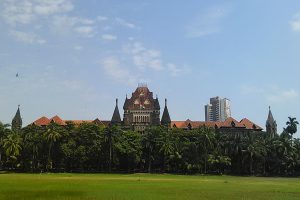Bombay High Court: K.K. Sonawane, J., acquitted the appellant who was convicted by the trial court for offences punishable under Sections 307 (attempt to murder) and 353 (assault or criminal force to deter public servant from discharge of his duties) IPC.
Dramatic Incident
On the night of 21-02-2002, a function for the inauguration of Bhartiya Yuva Morcha’s branch office was underway. A sudden fight occurred at the spot following lewd and offensive comments passed by one Shivaji Mundhe against the leader who was inaugurating the office. The audience started thrashing him but the Police personnel deployed on duty intervened and rescued him from the clutched of the violent mob. They were about to take away Shivaji Mundhe in the police jeep when the appellant snatched the revolver of the Polic personnel driving the jeep and put it near his ear. Suddenly from the crowd, someone pulled back the appellant and before any further untoward incident could have occurred, the police took away Shivaji Mundhe.
Conviction
A case was registered and charges were framed against 17 accused for various offences under the Penal Code, the Prevention of Damage to Property Act, 1984 and the Arms Act, 1959. The Additional Sessions Judge acquitted accused 2-17 from all charges holding that the prosecution failed to prove offences against them beyond the reasonable doubt. The present appellant was also exonerated from all charges but two. He was held guilty for the offences punishable under Sections 307 and 353 IPC. Aggrieved thereby, the appellant invoked the remedy under Section 374(2) CrPC and preferred the present appeal.
Acquittal
The High Court perused the entire record. Discussing Section 307, the Court observed, “It is evident from the aforesaid provision that there must be an act which is itself sufficient of causing death.”
Relying on illustration (C) of Section 307, the Court observed, “in a case of attempt to cause death by fire arm, the arm must be fired and till it’s fire no offence of attempt to commit murder under Section 307 of the IPC is held to be taken place.”
It was clarified that, “the provisions of Section 307 of the IPC would apply to the situation, when there has not been merely a commencement of an execution of the purpose, but, something remains short of complete execution; the consummation being hindered by the circumstances, independent of the will of the author.” However, distinguishing the present case on facts, the Court held, “It is to be reiterated that till appellant used the weapon for firing, he cannot be blamed for the offence of attempt to commit murder. But, if he opened the fire and intervention of someone else prevented the shot from taking effect, the offence under Section 307 of the IPC would be held committed against the appellant. In such peculiar circumstances, in the present case, conviction of appellant under Section 307 of the IPC is not sustainable and deserves to be quashed and set aside.”
Furthermore, it was held, ” the appellant had no strain relations or animosity with the police personnels, nor they had come in contact with each other prior to the incident. The restive mob vented wrath against the miscreant PW-4 Shivaji Mundhe. There was no reason for the appellant to assault police constable for committing his murder. It is unsafe to fasten guilt on the appellant for the charge under Section 307 of the IPC.”
Regarding conviction of offence under Section 353 IPC, it was held that “there is no propriety to fasten the guilt under Section 353 of IPC against the sole appellant, when he has been absolved from the offence of unlawful assembly, rioting etc.”
Reversing the order of conviction passed against the Appellant Court, held that, “the act of
appellant flashing the revolver to the Police Personnels would not (by) itself (be) sufficient to constitute offence under Section 307 of the IPC against him.”
Holding as such, the Court allowed the appeal and acquitted the appellant. [Walmik v. State of Maharashtra, 2019 SCC OnLine Bom 449, decided on 28-02-2019]

